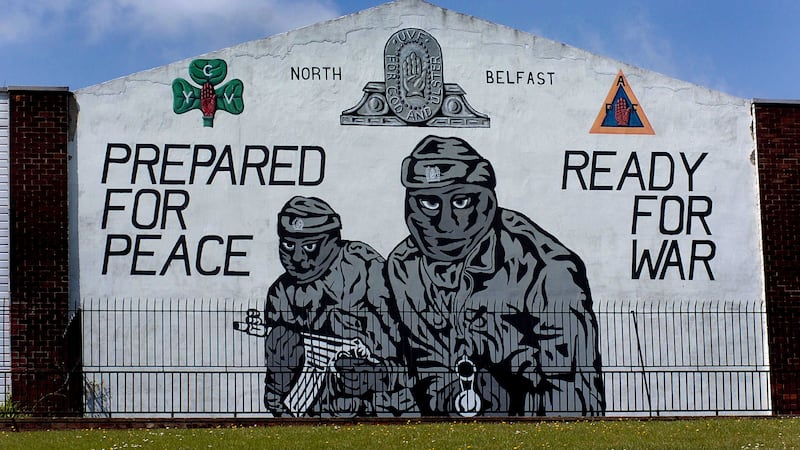I shall remember this election for many years to come, but for all the wrong reasons.
Years of peace building work and trying to unite divided communities, to make this place a better more stable place to live, damaged as we reverse at breakneck speed to days of old.
The default position for a frightened loyalist population is one of never, never, never and that’s pretty much where we find ourselves with just weeks until the general election.
Dissident republicans have all but disappeared off the news agenda.
The sporadic attacks they are associated with were never going to cause any serious concern at Westminster.
However, the threat of violence at the border - should infrastructure be erected to facilitate Brexit - did feature heavily in the first few years of withdrawal negotiations.
It is hardly surprising that loyalists picked up and mimicked this behaviour with threats of their own.
In reality, thinking that a handful of dissidents - even the most generous of security assessments put their numbers at less than 500 active members - played a major role in dictating an international trade deal is naive.
The active armed groups, while a threat to life and property locally, are no longer a serious national security risk.
Heavily infiltrated, their movements are constantly monitored by a considerable MI5 presence in Northern Ireland.
That Boris Johnson is banking heavily on an American trade deal, one that critics warn will see parts of the NHS sold off to US companies, would have been a much more persuasive factor in keeping the border free from checks.
Irish America remains a powerful force.
In April this year the most powerful US Democrat, Nancy Pelosi, visited the border and delivered the stark message that if Brexit damaged the Good Friday Agreement then Britain could forget about a US-UK trade deal.
And so it was dollar signs that shaped the Boris deal and dictated a sea border.
That the DUP were blindsided by this brings into question their strategic vision in backing a Brexit that history will show damaged the union in a way that the IRA never could.
That loyalism is in such a state of flux, threatening violence is a by-product of this lack of forward thinking.
Political unionism finds itself instead pandering to extremism rather than trying to calm a potentially volatile situation.
There has been no thought given to preparing the base for the worst-case scenario for unionism, which is the Tory administration gaining a workable majority and pushing ahead with their Brexit plan without the DUP.
The party can only hope that Labour poll better than predicted to give them a chance to halt the ‘Boris Betrayal Act’ in yet another hung parliament.
But what will political unionism do to calm the growing unrest among militant loyalists?
Loyalist paramilitary organisations that continued to recruit long after the ceasefires have numbers that dwarf groups such as the New IRA.
Thousands of members are still on the books with the capability to destabilise this place should they so wish.
We are not talking about Troubles related violence. Loyalists operated during those years with the arm's length assistance of the state and the state is not going to help them now.
But even acting unilaterally they could still bring disruption to cross border rail and roads links and to the port at Larne, conveniently located in a loyalist stronghold.
They could destabilise an economy already damaged by Brexit and shatter 20 years of cross community peace building by further dividing our already fractured society.
Actions that will make this place even less attractive to a British administration pursuing Brexit at all costs, even if the price to pay is the union.
The DUP now need to ask themselves if exploiting the fears of loyalism is really the best way to preserve the precious union or if they are unwittingly advancing the cause of Irish unity with their actions and words.
But more urgently, they need to ask where their responsibility lies if hyped up talk of betrayal leads to dire consequences.








